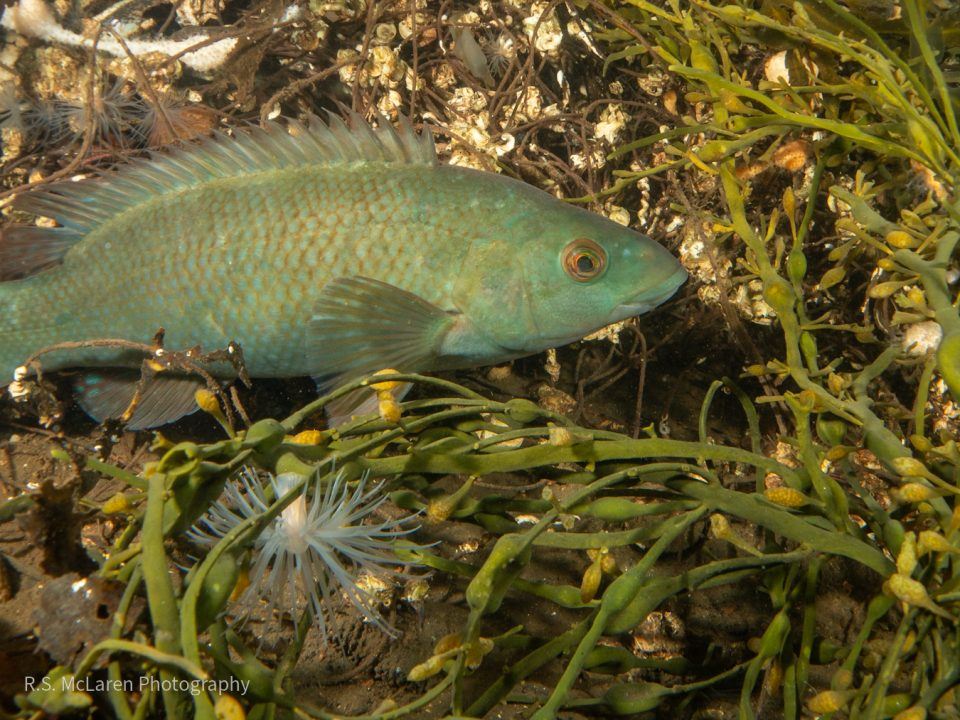A more precautionary approach needs to be taken to manage stocks of a fish described as a “keystone species” in Scotland, an expert has said.
Dr David Bailey, a lecturer in marine biology at the University of Glasgow, said there are “good reasons to be concerned about wrasse fisheries in Scotland”, adding the fish is “vulnerable to over-exploitation”.
He was speaking as MSPs consider a petition from the Sustainable Inshore Fisheries Trust (Sift) which calls on ministers to introduce a statutory fisheries management plan focused on protecting wild wrasse stocks.
It will be considered by members of the Citizen Participation and Public Petitions Committee at Holyrood on Wednesday, and comes as Environmental Standards Scotland is expected to rule that appropriate assessments should be required in special areas of conservation before wrasse can be caught.
Sift executive director Charles Millar described wrasse – which are used as a cleaner fish to reduce lice on salmon in fish farms – as a “keystone species in Scotland’s inshore waters”.
But he accused the Scottish Government of having so far “failed to act” to protect the species, adding the fish are caught during their breeding season.
Mr Millar said: “At the moment the salmon farming industry has disproportionate influence over how the wrasse fishery works.
“It wants wrasse in the early summer, so the Government allows fishing then even though it’s the wrasse breeding season.
“Almost a year ago Sift wrote to Scottish ministers calling on them to meet their marine management responsibilities, and in particular to develop a fishery management plan for wrasse based on sound science.
“But the Government has failed to act, which is why we now hope the Scottish Parliament will listen and act.”
Dr Bailey said: “There are good reasons to be concerned about wrasse fisheries in Scotland. They have many life history characteristics which make them vulnerable to over-exploitation, and there are large gaps in the evidence base that we need to manage fishing and assess the wider ecological effects of wrasse removal.
“Under these circumstances, the approach to this fishery should be much more precautionary, until adequate assessments of wrasse populations and spatial connectivity are undertaken and we understand something about the ecological effects of this fishery.”
As a “first measure”, the expert suggests closing protected reefs to wrasse fishing, saying this would “ensure that at least some wrasse populations survive, and allow the ecological effects of wrasse fishing to be assessed”.
Bally Philp, the national co-ordinator of the Scottish Creel Fisherman’s Federation, said while the consequences of removing large numbers of wrasse are unknown, “we fear it will jeopardise other commercial fish stocks as well as the ecosystems they rely upon”.
He said: “As with many other fisheries, what’s needed is a proper fisheries management plan, based on good data, with appropriate closed periods to protect wrasse breeding seasons.”
A Scottish Government spokesperson said: “Mandatory controls are in place to protect wild wrasse and manage the restricted fishery, including a closed season, trap limits and size limits.
“The controls are kept under review and based on the best available evidence.
“As set out in a letter to the Citizen Participation and Public Petitions Committee by the Rural Affairs Secretary, the Scottish Government will undertake a Fisheries Assessment on the impacts of removing wild wrasse from Marine Protected Areas and Special Areas of Conservation ahead of the 2025 fishery season.
“The assessment will be based on new advice from NatureScot.
“The Scottish Animal Welfare Commission is also assessing the welfare aspects of the use of cleaner fish in salmon production and we look forward to receiving their recommendations.”
Follow STV News on WhatsApp
Scan the QR code on your mobile device for all the latest news from around the country


 PA Media
PA Media
























